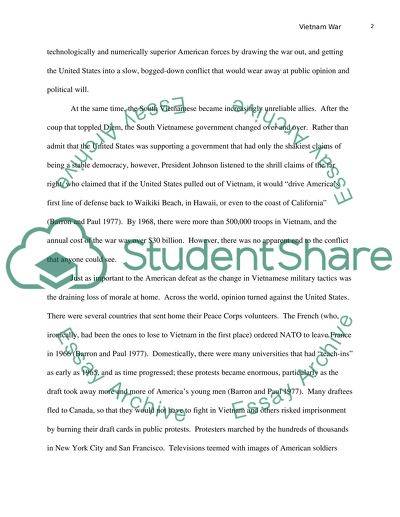Cite this document
(“US history: Vietnam according to reader's digest Essay”, n.d.)
Retrieved from https://studentshare.org/military/1507563-us-history-vietnam-according-to-readers-digest
Retrieved from https://studentshare.org/military/1507563-us-history-vietnam-according-to-readers-digest
(US History: Vietnam According to reader'S Digest Essay)
https://studentshare.org/military/1507563-us-history-vietnam-according-to-readers-digest.
https://studentshare.org/military/1507563-us-history-vietnam-according-to-readers-digest.
“US History: Vietnam According to reader'S Digest Essay”, n.d. https://studentshare.org/military/1507563-us-history-vietnam-according-to-readers-digest.


